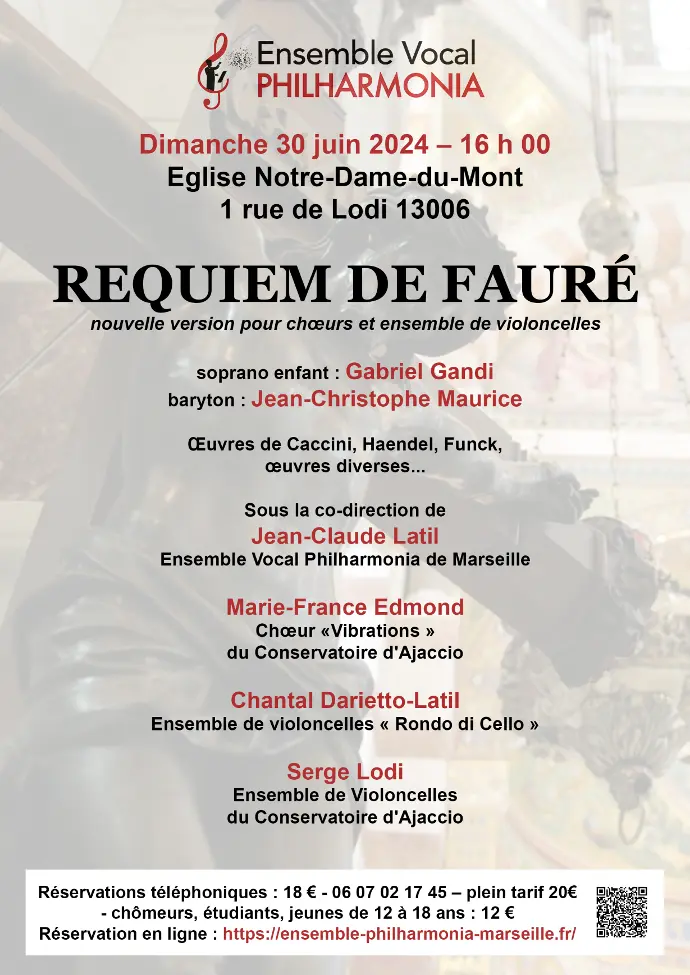Musical Talent Education
The Musical Talent Education Cello School welcomes you for a complete immersion in the world of the cello. Founded on the principles of the Suzuki method, our school offers a unique and enriching pedagogical environment where each student, starting at the age of 3, can develop their musical talent.
The Philosophy of the Suzuki Method
The Suzuki method is suitable for all stages of development, from early childhood to adolescence. This teaching approach is based on the idea of meeting the child where they are and guiding them with kindness, respecting their individual pace and valuing their progress
The triangular relationship between child, parent, and teacher is at the heart of this method, creating an environment of perseverance, humility, love, and kindness. This approach fosters not only the child's musical growth but also their personal development, guiding them toward a deep appreciation of the beauty of music.
In conclusion, beginning musical education at an early age provides a natural and smooth transition toward instrumental mastery and deep musical understanding, fostering ease of playing from the very first stages of learning.
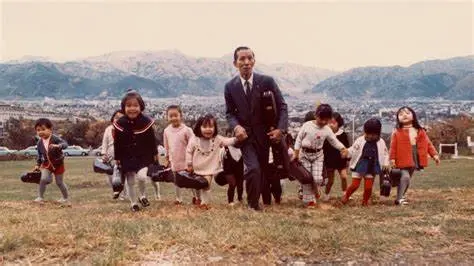
The Organization of the Musical Learning Journey
At the Cello School of Musical Talent Education, the learning path is carefully structured to support students from ages 3 to 15, respecting their individual pace and nurturing their musical development.
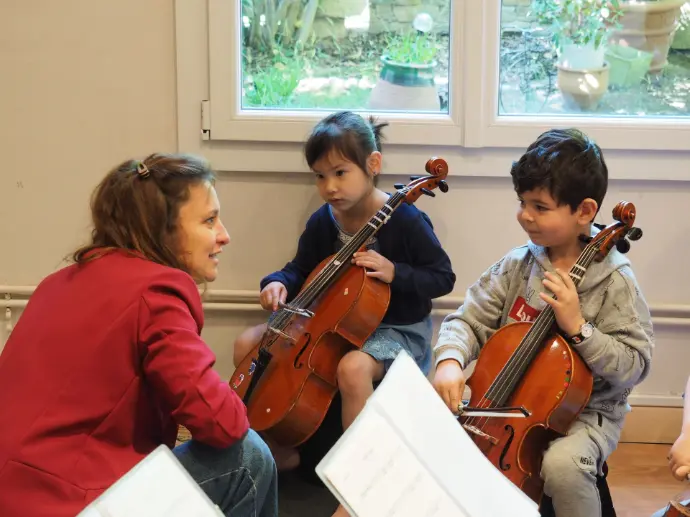
The 'Ladybugs' (ages 3 to 5)
Young children begin their cello journey in the 'Ladybugs' group. At this age, teaching focuses on play and listening, allowing them to discover the instrument in a playful and natural way
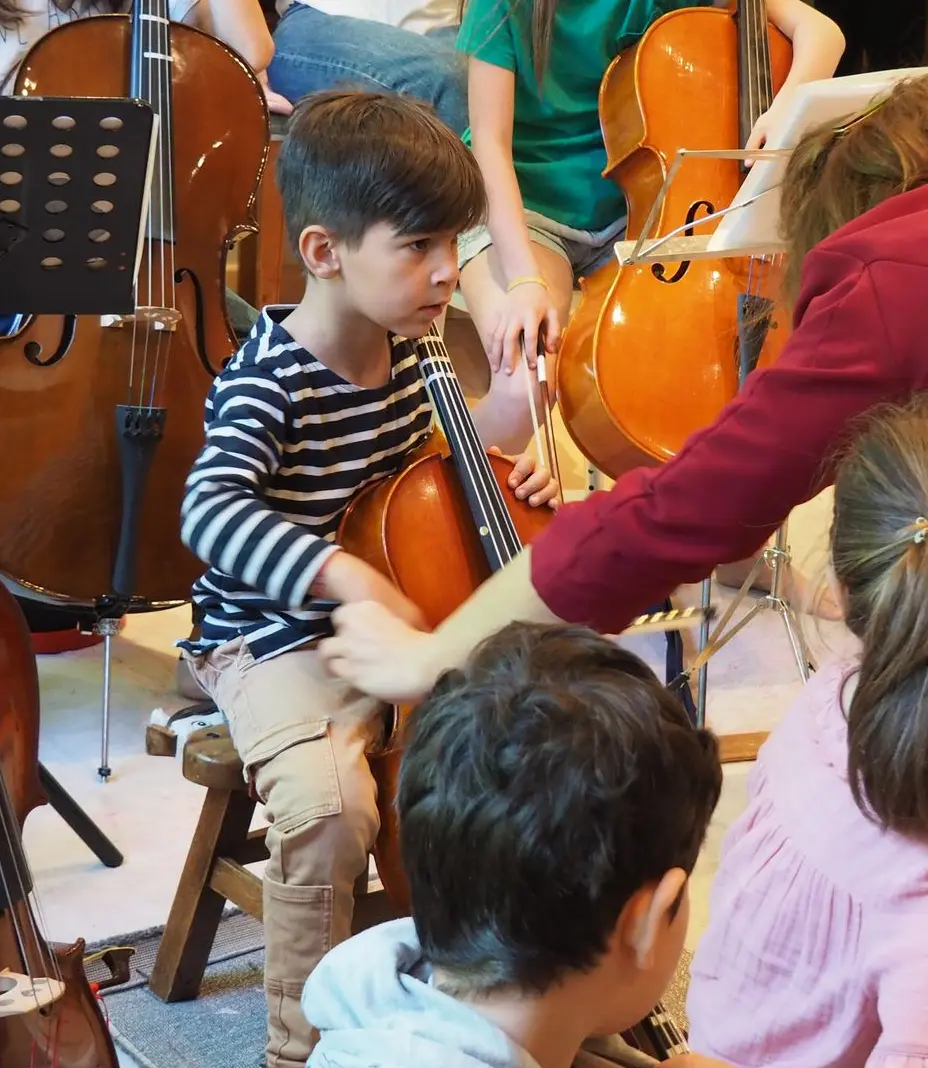
The 'Elves' (ages 6 to 7)
Around the ages of 6 to 7, students move on to the 'Elves' group, where they begin pre-reading music. They continue to grow alongside their peers, strengthening their sense of community while developing essential musical skills.
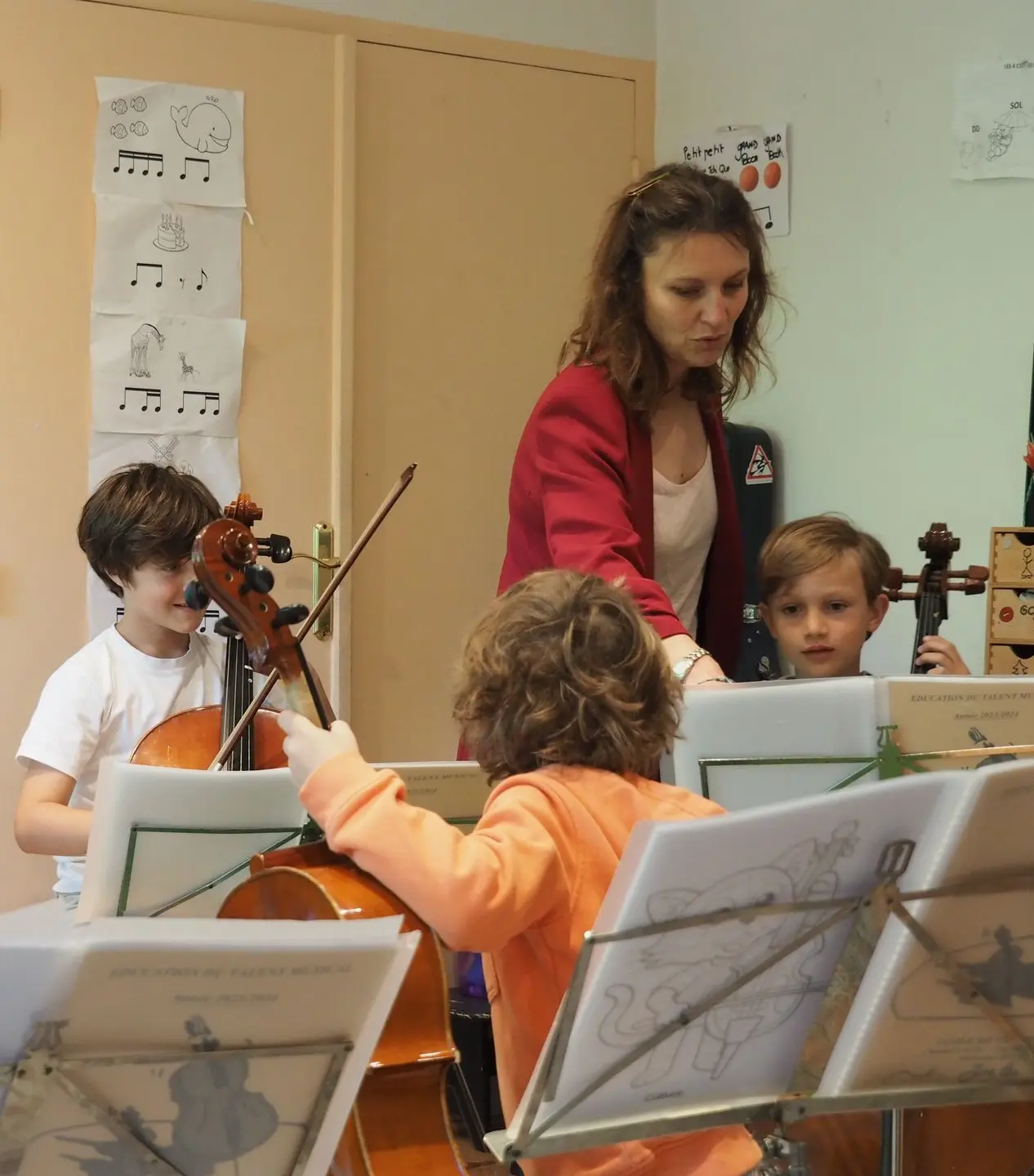
The 'Little Wolves' (ages 8 to 9)
At ages 8 and 9, students join the 'Little Wolves' group. The focus shifts toward autonomy and the development of technical skills. Children begin working on more complex repertoire and gain a deeper understanding of music.
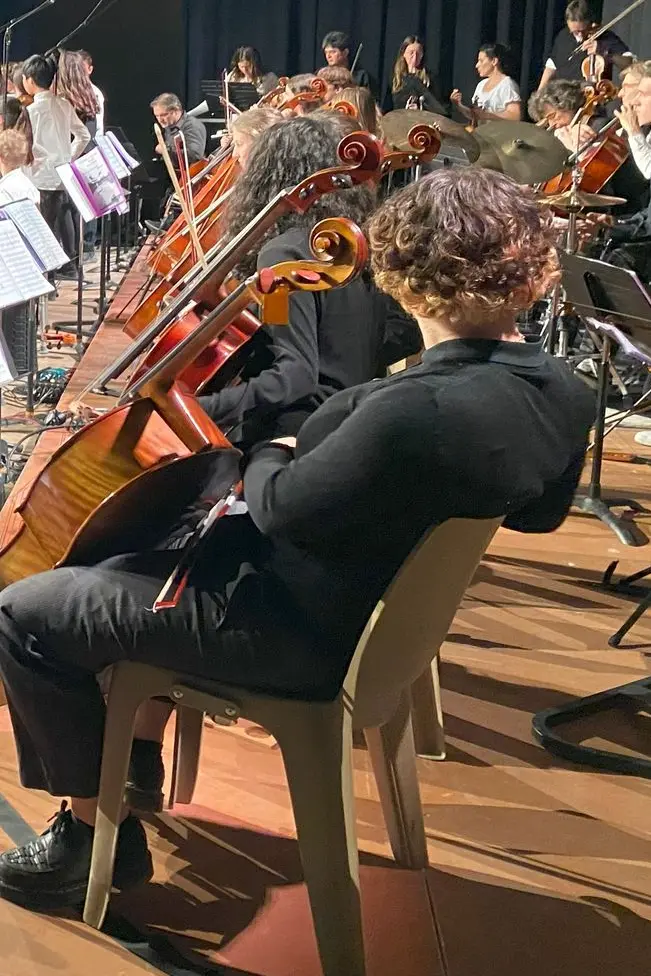
The 'Advanced' and 'Pre-Teens' Groups (ages 10 to 15)
Older students, grouped into the 'Advanced' and 'Pre-Teens' levels, continue to refine their technique and explore a broad repertoire, ranging from classical and romantic to contemporary music. This stage is crucial for solidifying their instrumental mastery and artistic expression.
